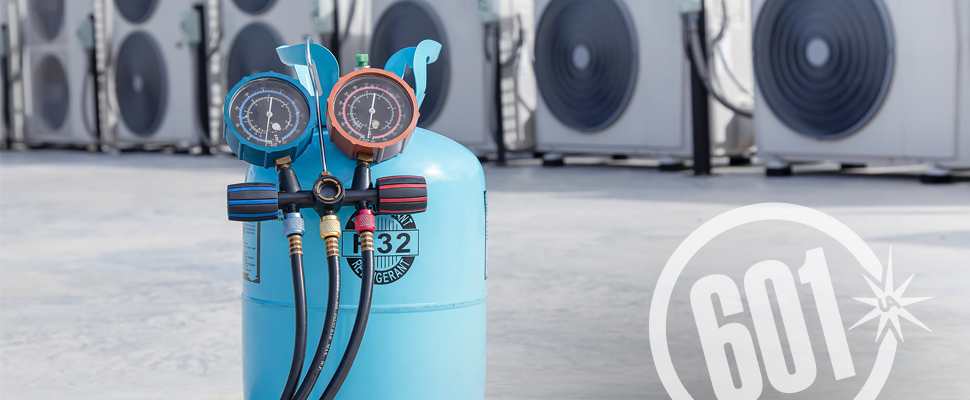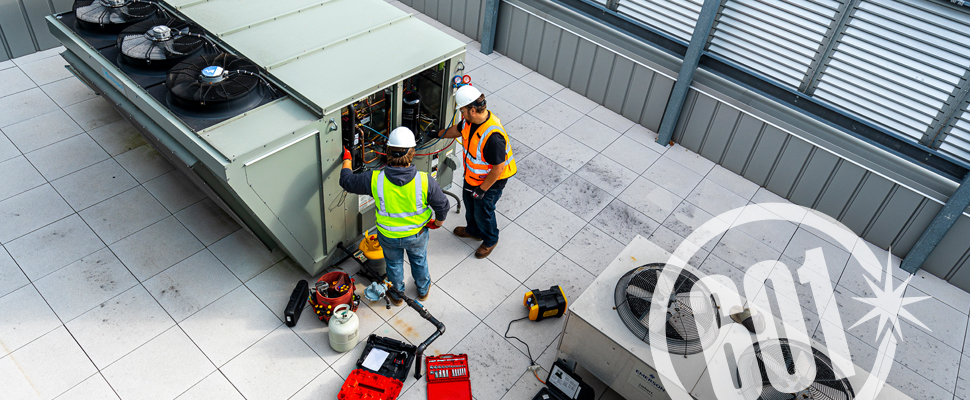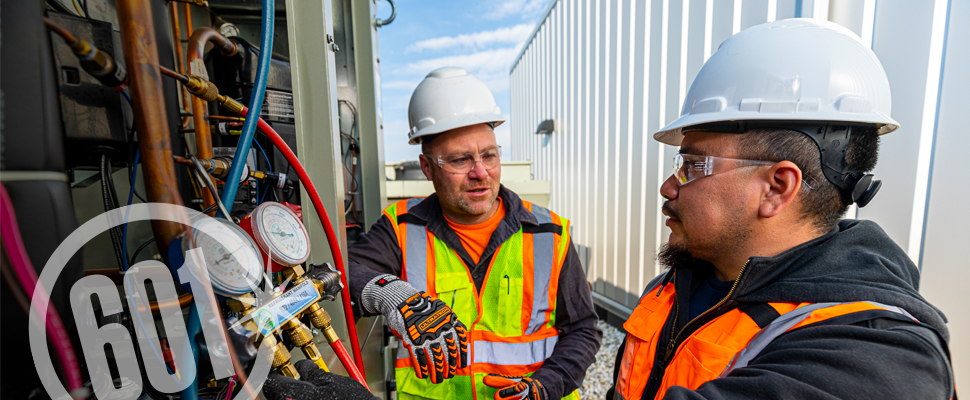The low and medium-temperature refrigeration industry is undergoing significant changes due to evolving government regulations and environmental sustainability initiatives. Businesses that rely on refrigeration, whether for food storage, industrial processing or pharmaceuticals, must stay informed to ensure compliance and maintain operational efficiency. The most notable shift involves the phase-out of high-global-warming potential (GWP) refrigerants.
The Environmental Protection Agency (EPA) and international agreements have set ambitious targets for reducing hydrofluorocarbon (HFC) refrigerants. These changes affect a wide range of industries, from industrial cold storage to grocery stores, restaurants, hotels and convenience stores (C-stores), all of which rely on refrigeration to keep products, food and medications at safe temperatures.
The Role of Zone Mechanical North
Zone Mechanical North, a Local 601 signatory contractor, plays a critical role in supporting businesses through these industry transitions. They provide design-build criteria drawings, equipment procurement, installation and service and warranty work. Their expertise spans industrial, light industrial and commercial refrigeration applications, including convenience stores, grocery stores and industrial process cooling. They exclusively employ union labor for their technical workforce, which ensures high-quality service and industry expertise.
“Local 601 produces highly skilled and safety-conscious apprentices and journeymen. These professionals undergo rigorous training and obtain crucial certifications such as the EPA refrigerant certification. Their expertise gives our company a competitive edge over non-union counterparts,” said Randy Mihalko, Service Operations Manager for Zone Mechanical North.
Technicians must be well-prepared to handle the increasingly complex refrigeration systems that come with regulatory changes. Alongside training through Local 601, Zone Mechanical North provides extensive in-house training and collaborates with Original Equipment Manufacturers (OEMs) to equip their workforce with up-to-date knowledge and best practices.
The Future: Moving Towards Natural Solutions
New government regulations are driving the industry towards natural refrigerants such as CO2 and propane. The transition has been a moving target, with previous refrigerants like R12 and R502 giving way to R22, 134a and then 404a, 507 and 407. In 2016, the phase-out of the 400 series refrigerants accelerated the shift to R448 and R449. Now, with upcoming 2026 regulations, all new refrigeration systems will be required to use CO2 and propane-based solutions, while remodels will be assessed based on the percentage of equipment being replaced.
While these new refrigerants offer environmental benefits, they also introduce new challenges. For example, propane is highly flammable, and CO2 systems operate at significantly higher pressures, requiring technicians to be trained in handling these more complex setups. The shift can also lead to increased installation costs, as CO2 and propane systems require new infrastructure rather than refrigerant drop-ins.
Financial Implications
The move towards CO2 and propane-based refrigeration systems comes with financial implications. Unlike older refrigerants that allowed for drop-in replacements, businesses transitioning to natural refrigerants must invest in new equipment. However, despite the higher upfront investment, businesses can expect lower long-term operating costs. The price of CO2 is significantly lower than traditional refrigerants, and while installation expenses may rise by 10-20%, according to Zone Mechanical North’s Mitch Melendy, Area Vice President, efficiency improvements in piping and controls can help offset some of these costs. Companies investing in new refrigeration systems now will benefit from regulatory compliance and operational savings in the long run.
What Will Change for Technicians?
While the core principles of refrigeration remain unchanged, technicians will need to adapt to working with new refrigerants and complex system configurations. Daily responsibilities will stay the same, but additional training is necessary to maintain safety and efficiency when handling CO2 and propane systems.
Safety remains a top priority, and the highly trained apprentices and journeymen from Local 601 are well-equipped to handle these evolving industry standards. Their extensive training ensures a low incidence of safety issues, keeping the workforce protected while maintaining top-tier service.
Choose the Right Partner and Don't Wait
The refrigeration industry is at a pivotal moment as it transitions to environmentally friendly refrigerants and adapts to new regulations. Businesses must proactively prepare by upgrading systems, training staff and leveraging expert service providers like Zone Mechanical North. They believe in partnership and work with customers to plan for these changes to help them with their unique needs. “Be open to change and be proactive,” said Mitch Melendy. “Early discussion, partnering with your contractors and being part of that discussion for how to adapt and problem solve as a team is paramount.” Companies that embrace these changes and work with highly skilled signatory contractors like Zone Mechanical North will position themselves for long-term success in a changing industry.




